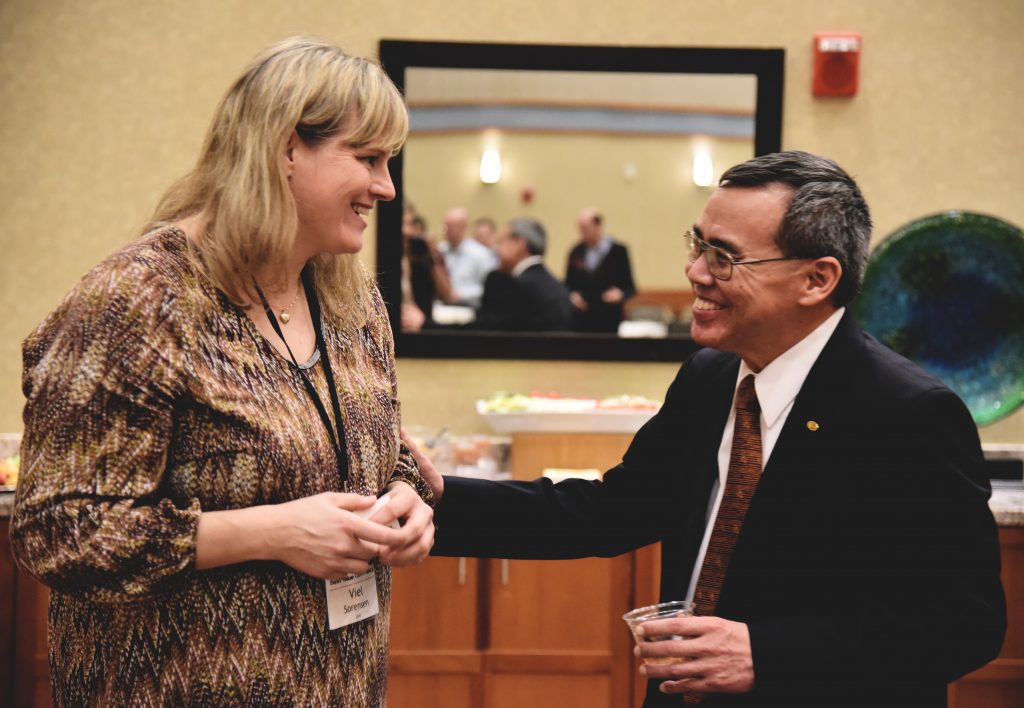
09 Feb How to Attract a High Performing Vendor
It Is Tough to Find an Expert Vendor
Finding a high performing vendor for a project is the best thing a client can do to ensure their expectations are met with the fewest issues. Unfortunately, the number of expert vendors who have the ability to deliver high performing results, are very few. In the last 10 years, many of the experienced skilled workforce has retired and the ones that are still working are approaching retirement. The average age of a skilled worker right now is over 50 (Criscone, 2018; Irwin Tools, 2013; Manpower Group, 2021; SGC Horizon, 2022; SHRM Foundation). But that is not all. In recent years, demand for expert workers and vendors have increased due to economic circumstances and government stimulus, which means it is even harder for buyers to convince an expert vendor to work for them due to the money and opportunities available.
Natural Law of Attracting a High Performing Vendor
Despite the scarcity of experts, there is good news! There is a way to ensure that you find a high performing vendor. There is a natural law that can guarantee any buyer to find an expert vendor. The natural law is “Birds of a feather flock together”.
This natural law identifies that expert vendors are attracted to expert buyers. In other words, there are certain characteristics that expert vendors seem to be attracted to that somehow brings them to buyers/clients that also have these characteristics [Adam Smith described it as the “invisible hand”]. In this article, we will cover four of these characteristics:
- Values expertise and not marketing
- Minimizes talking
- Requires simplicity
- Respects experts
Studies have found that when buyers have these characteristics expert workers and vendors seem to want to work with them (Amazon Jobs; 2022; Forbes Technology Council, 2018; Goodridge, et.al.; Kashiwagi and Mayo, 2001; Kashiwagi and Byfield, 2002; Kashiwagi, et.al., 2002; Kashiwagi, et.al., 2003; Kashiwagi, et.al., 2008; Li, 2020; McFadden, 2020; Ranker, 2017; Meister, 2021; The Amazon Playbook, 2019).
Values Expertise not Marketing
Experts love to deliver value and pride themselves on their efficiency. They do not want to spend time, money, or energy on anything that does not add value to the buyer and does not utilize their expertise. I have found that the highest performing vendors do not like to spend a lot of time creating marketing material to impress buyers. They do like to continually collect performance metrics and information that shows a buyer their expertise. Unfortunately, this information is not attractive or flashy in anyway—it is simple numbers.
Experts are looking for buyers that will hire the vendor with the highest performance. If they find an owner that is looking for flashy pictures and professional videos to impress them, they will likely try to find another buyer to work with. They want to know that the buyer is more concerned with the person that will actually do the project, rather than the salesman for the company. This is for a couple of reasons. First, buyers that like marketing also enjoy talking more and hiring based on relationships. Second, expert vendors have a tough job getting a project when the buyer hires based on marketing information alone.
Minimizes Talking
Experts are not attracted to situations where people talk too much. There are many reasons for this. One of these reasons is purely financial. The more someone talks the more time they take, and the more time they take – the less money that can be made from the project. This is especially true with experts that are usually paid more but reduce the overall cost of a project by their efficiency and performance.
The second reason for this deals with their competitiveness. Experts have a high degree of knowledge and information on what they provide, whereas non-experts do not. Thus, when the buyer does not provide a lot of information, an expert has the advantage because non-experts don’t know what to do. The more a buyer talks, the less advantage a non-expert has and the tougher it is for them to get a project. Experts like going to buyers where they have the advantage. When buyers select vendors based on expertise rather than relationships, expert vendors have a higher advantage. Thus, when experts see a lot of talking, it is a sign that the buyer will more than likely select based off relationships rather than performance.
The next reason experts are attracted to buyers that minimize their talking, deals with their mental sanity. It is difficult for someone who is highly skilled to listen to someone who does not understand their expertise. Although experts usually are patient and will take the time to listen and resolve concerns from the buyer, if they have to do this too much, it causes them stress and consternation. Especially because it takes them away from their work, which they usually enjoy the most.
The last reason leads us to our next characteristic of simplicity. The more talking that is done, the more complex something is and will become. Experts don’t like going into situations where things are complex because complexity creates risk and negatively affects performance.
Requires Simplicity
Experts do not like complexity. Complexity brings confusion, confusion brings risk, and risk brings lower performance. This is why one of the characteristics of an expert is that they can simplify a project to increase transparency and mitigate the risk. When a buyer requires people and vendors working on their projects to simplify their work and communicate in non-technical terms, they are inherently eliminating any non-experts from being able to work for them.
Non-experts and low performers who can’t simplify projects. They love confusion, because it allows them to not take accountability for the issues and low performance that occurs. When an owner is willing to accept a vendor that can’t explain what they are doing or their explanation is complex and confusing, they are opening the door for these non-performing vendors on their projects. Amazingly, this will also increase the talking as well.
Respects the Expert
This is one of the most important characteristics for a buyer to have. Experts know their value; they know there are very few people that can compete with their capability and high performance. When a buyer does not respect this, they will find that the experts will not want to work with them anymore.
Expert vendors have the following characteristics:
- They are honest and fair.
- They work because they love what they do and not for money.
- They pride themselves on their efficiency and high quality of work.
- They will not accept a project if they cannot add value.
 Buyers who understand the characteristics of an expert show respect to them in the following ways:
Buyers who understand the characteristics of an expert show respect to them in the following ways:
- They do not try to negotiate their price. They already know the expert offered a fair price and will add a lot of value to the project they normally would not have received.
- They do not try to make the expert pay for something that was not their fault on a project. This could be due to an unforeseen event, an action by a stakeholder or third party, or it could be an unknown condition. Whatever the cause, if an issue happens on a project that the expert could not have foreseen or prevented, the buyer does not make the expert eat the increased cost but pays for it.
- They create an environment that minimizes administrative work for the vendor and allows them to focus on doing what they do best, their expertise.
- They do not try and tell the expert what to do. If they have concerns, they bring it up to the expert and listen to the expert’s opinion. If they decide to go against the expert’s opinion, they take accountability for any increases to cost and time, or decreased quality.
When an expert finds a buyer that respects their expertise, they will continue to do work with them forever. Experts value finding a buyer that listens to them, treats them fairly, and understands their time is valuable.
Conclusion
Although there are very few experts in the industry at any time, it is not hard to find them if buyers take the right approach. Birds of a feather flock together. As a buyer develops the right characteristics, expert vendors will be drawn to them and begin delivering high performing projects in no time.
If your organization is reading this article and has an interest in learning more about implementing the BVA, click below:
- Free membership for latest tips and news: https://pbsrg.com/membership/
- For latest books, events, and licensed partners: https://pbsrg.com/resources/
- Latest BVA journal publications: www.cibw117.org/
- Annual Best Value Conference in January: https://bestvalueconference.ksm-inc.com/
- Latest presentations and videos: https://www.youtube.com/channel/UCxBi26nXLDTqG4ZRV6p0iiQ
References
Amazon Jobs. (2022). Leadership Principles. Amazon. Web. 1/24/2022. Retrieved from: https://www.amazon.jobs/en/principles
Criscone, S. (2018). Solutions to the Skilled Labor Gap. Homeserve. Contractor Magazine. Web. 1/24/2022. Retrieved from: https://www.homeserve.com/media/solutions-to-the-skilled-labor-gap
Forbes Technology Council. (2018). 13 Reasons Google Deserves Its Best Company Culture Award. Forbes Magazine. Web. 1/24/2022. Retrieved from: https://www.forbes.com/sites/forbestechcouncil/2018/02/08/13-reasons-google-deserves-its-best-company-culture-award/?sh=4efdc0ef3482
Goodridge, S., Kashiwagi, D.T., Ahmed, S. and Sullivan, K. (2006) “Case Study: Best Value Procurement at Baptist Hospital South Florida” Symposium on Sustainability and Value through Construction Procurement 2006, CIB W092-Procurement Systems, Digital World Center Salford, UK pp. 206-217 (November 29, 2006).
IRWIN Tools. (2013). Tradesmen Fast Facts. National Tradesmen Day.Com. Web. 1/24/2022. Retrieved from: http://www.multivu.com/players/English/62136-national-tradesmen-day-the-hands-that-built-america/flexSwf/impAsset/document/ccad66a2-6c59-4aa1-807b-eed25dbd5ce0.pdf
Kashiwagi, D. T. and Mayo, R. E. (2001) “State of Hawaii Selects “Best Value” by Artificial Intelligence.” Cost Engineering, 43 (4) pp. 38-44, April.
Kashiwagi, D.T. and Byfield, R. (2002) “Case Studies of the State of Hawaii and Utah Implementation of Performance Based Contracting” COBRA 2002 – Construction and Building Research Conference, Notting ham Trent University, UK; Vol. 1, pp. 297-309 (September 5, 2009).
Kashiwagi, D.T., Savicky, J. and Kashiwagi, A. (2002) “Analysis of the Performance of ‘Best Value’ Procurement in the State of Hawaii” ASC Proceedings of the 38th Annual Conference Virginia Polytechnic Institute and State University – Blacksburg, Virginia, pp. 373-380 (April 11, 2002).
Kashiwagi, D. T., Parmar, D. and Savicky, J. (2003) “The Impact of Minimizing Specifications and Management at the University of Hawaii.” Journal of Facilities Management, 2 (2) pp. 131-141, September.
Kashiwagi, D.T., Savicky, J. and Parmar, D. (2003) “Case Study of the University of Hawaii Implementation of Performance Based Procurement” Joint International Symposium of CIB Working Commissions: W55 Building Economics, W65 Organization & Management of Construction, W107 Construction in Developing Countries; Singapore, Vol. 1, pp.395-402 (October 22, 2003).
Kashiwagi, J., Kashiwagi, D.T., Sullivan, K. (2008). PM Assisted Structure Can Efficiently Improve Project Performance. PM-04 – 4th SCPM & 1st IPMA/MedNet Conference. “Project Management Advances, Training & Certification in the Mediterranean”. 29-31 May 2008, Chios Island, Greece.
Li, L. (2020). 10 Reasons Why Google’s Company Culture Works. Tiny Pulse by Limeade. Web. 1/24/2022. Retrieved from: https://www.tinypulse.com/blog/10-great-examples-of-googles-company-culture
Manpower Group. (2021). The Talent Shortage. Manpower Group. Web. 1/24/2022. Retrieved from: https://go.manpowergroup.com/talent-shortage
McFadden, C. (2020). The Short but Fascinating History of Tesla. Interesting Engineering. Web. 1/24/2022. Retrieved from: https://interestingengineering.com/the-short-but-fascinating-history-of-tesla#:~:text=How%20did%20Elon%20Musk%20start%20Tesla%3F&text=Tesla%20was%20founded%20by%20Martin,of%20its%20Board%20of%20Directors.
Meister, P. (2021). Soichiro Honda Success Story – The Blazing Dreams to be Successful. Car From Japan. Web. 1/24/2022. Retrieved from: https://carfromjapan.com/article/industry-knowledge/soichiro-honda-success-story/
Ranker. (2017). The Top Amazon.com Employees. Ranker. Web. 1/24/2022. Retrieved from: https://www.ranker.com/list/notable-amazon-com-employees/reference
SGC Horizon. (2022) The Construction Industry Workforce is Getting Older. SGC Horizon. Web. 1/24/2022. Retrieved from: https://sgchorizon.com/construction-industry-workforce-getting-older
SHRM Foundation. Current Issues in HR. Closing the Manufacturing Skills Gap. Web. 1/24/2022. Retrieved from: https://www.shrm.org/hr-today/trends-and-forecasting/research-and-surveys/Documents/4-13%20Skills%20Gap%20Briefing.pdf
The Amazon Playbook. (2019). Designing for Simplicity: Loose Coupling and Emergent Behavior. Fortress Brand. Web. 1/24/2022. Retrieved from: https://fortressbrand.com/blog/designing-for-simplicity


